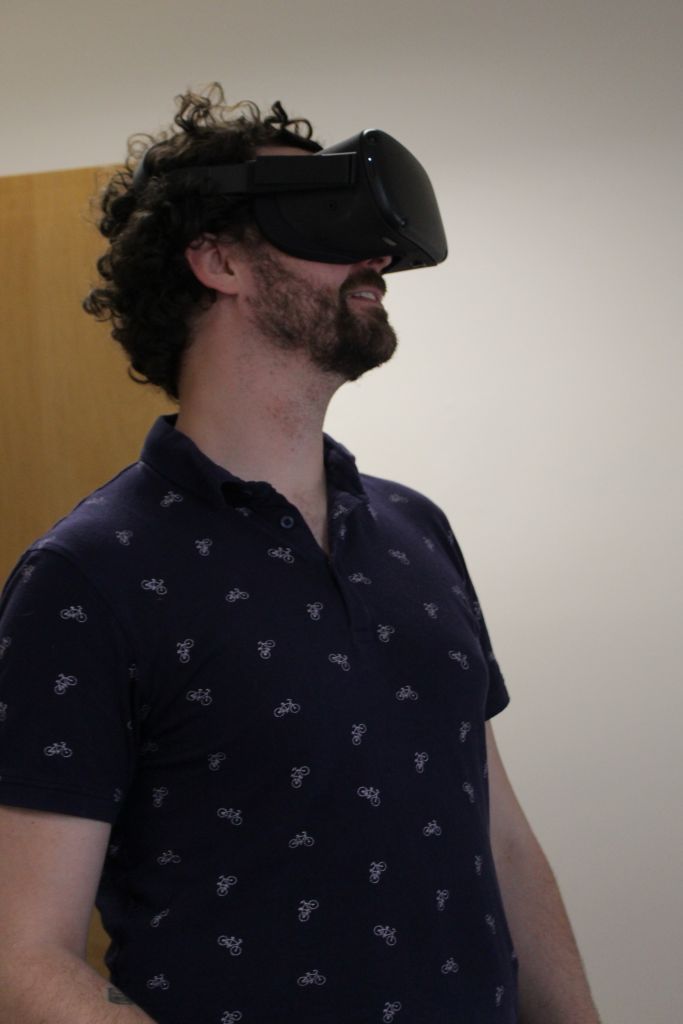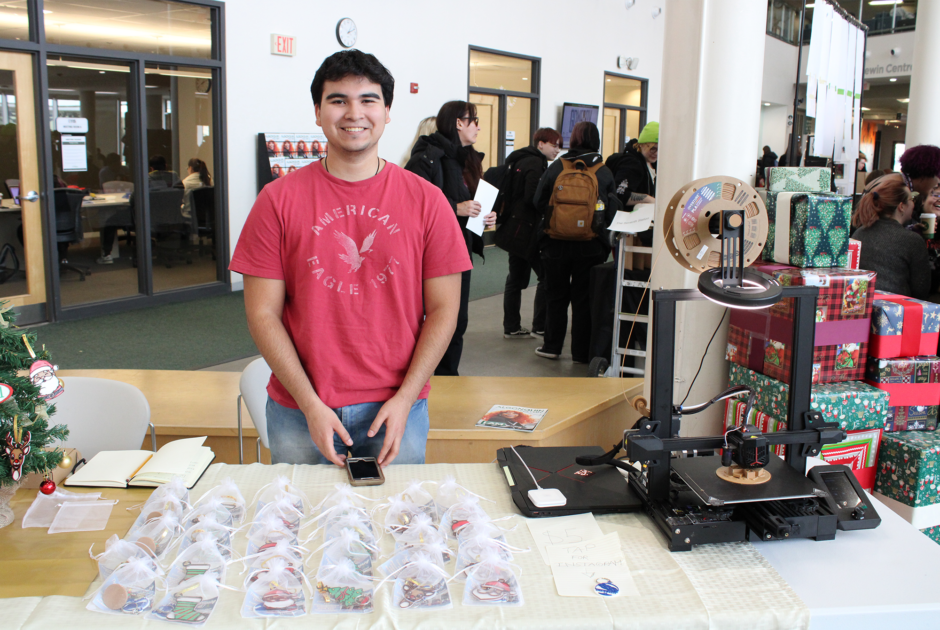How will virtual reality help students learn?

For students in STEM programs at Algonquin College, using a cellphone and a Google cardboard are useful tools to learn about abstract concepts.
Virtual reality is a tool which has been around for decades but research surrounding it is new. VR is not only for video gamers – nor should it be. Aside from the wow factor, VR has started to play a huge role in learning.
“VR is basically referred to an avatar that represents yourself in a space and it’s in a virtual world,” said Anthony Scavarelli, Algonquin professor in the design studies program. “The display isn’t necessarily a part of that equation.”
One of Scavarelli’s latest projects on VR is a collaboration with Learning and Teaching Services at Algonquin. It is a VR learning component that would help professors and students learn about the challenges that women face in the field of STEM. Not only is it a great learning tool, it’s accessible too.
“It is based on web technologies so it will be quite easy to share with anyone wishing to check it out via a hyperlink,” Scavarelli said.
Living in a diverse country such as Canada where we have people of all backgrounds, abilities, and experiences, we know the one-size-fits-all approach is not a great one for education.
Nuket Nowlan, a researcher from Carleton University is helping students learn real-world skills.
“Students can hone skills such as critical thinking, the ability to think on the fly, or drawing conclusions,” Nowlan said. “Those are things that cannot easily be fostered from textbooks. We can create many experiential activities that might take place in real life. Students can go through those and try artificial tutoring; we can help them identify what they are missing in their thinking process.”
Another one of VR’s benefits is that you don’t need expensive headsets or complex programs. YouTube or other apps will do just fine to explore VR from your home.
“More than 80 per cent [of the time] we received positive answers,” said Hossain Qorbani, a researcher at Carleton. “They [students] said it helped them learn better and help them understand the confusing concepts.”
With VR education being a relatively new field, there’s still a lot to discover and This is your snapshot into the future, Algonquin students. VR has shown to help students across many skills. Take advantage of the VR resources available to you through MakerSpace and immerse in the virtual world.








